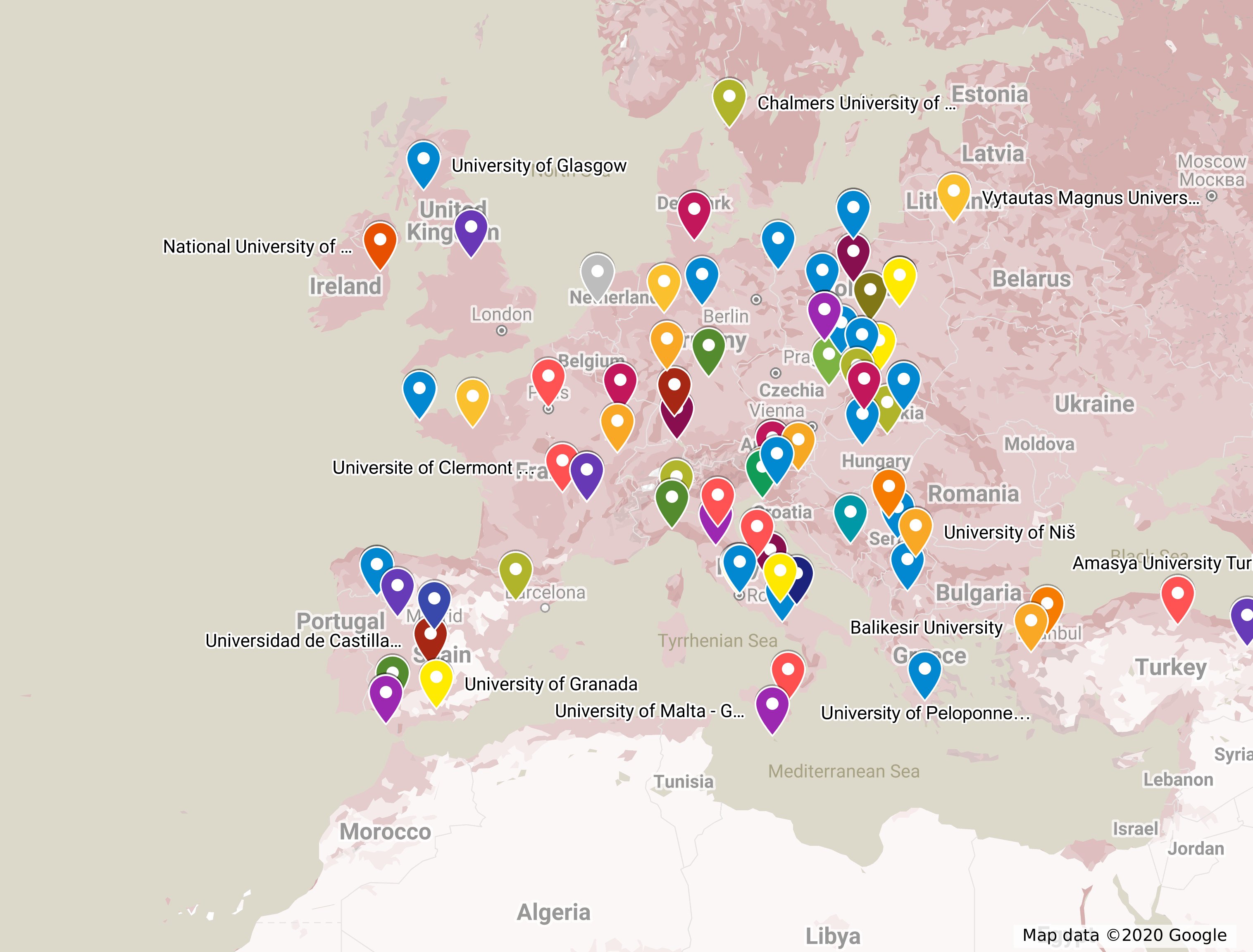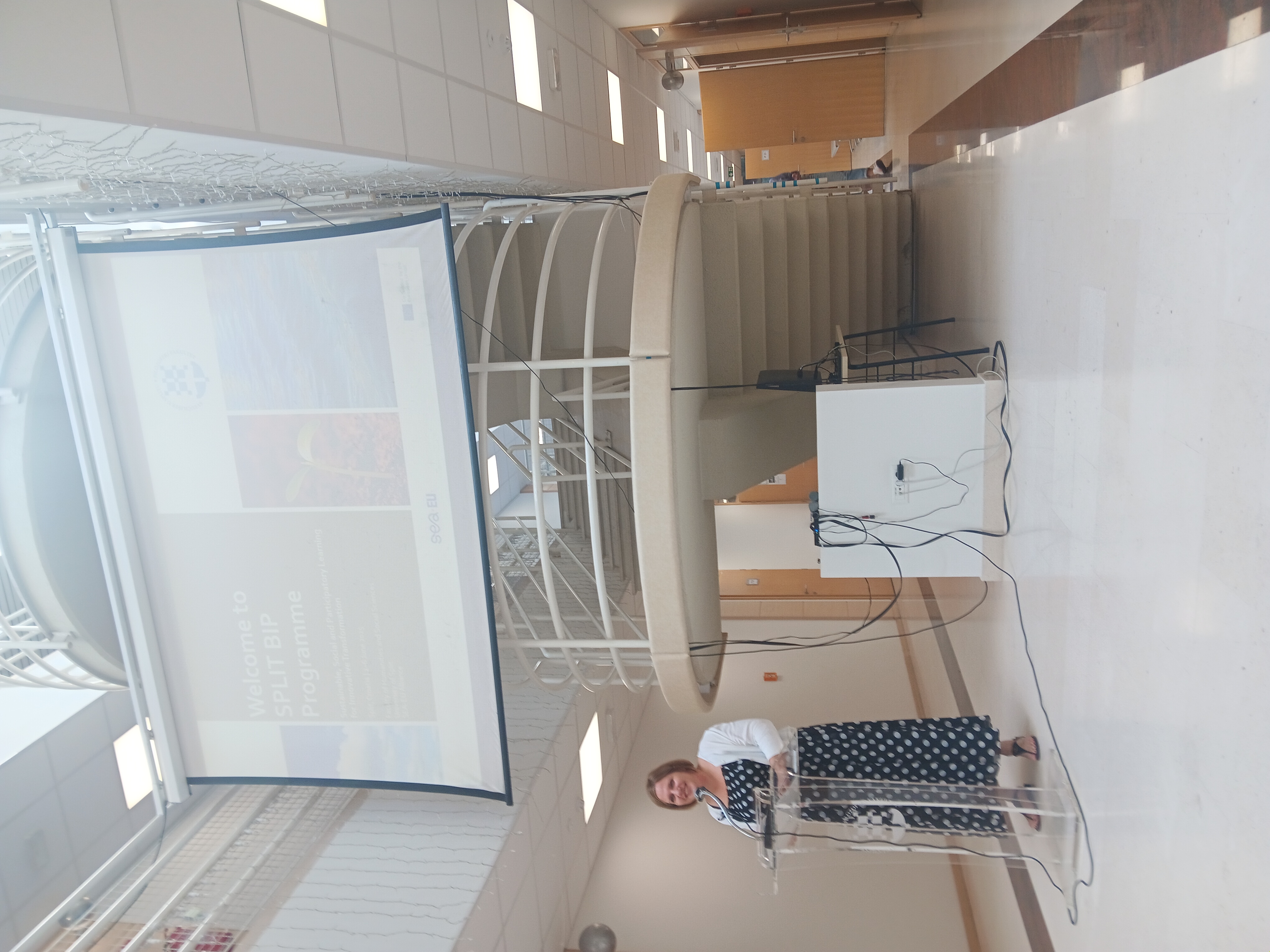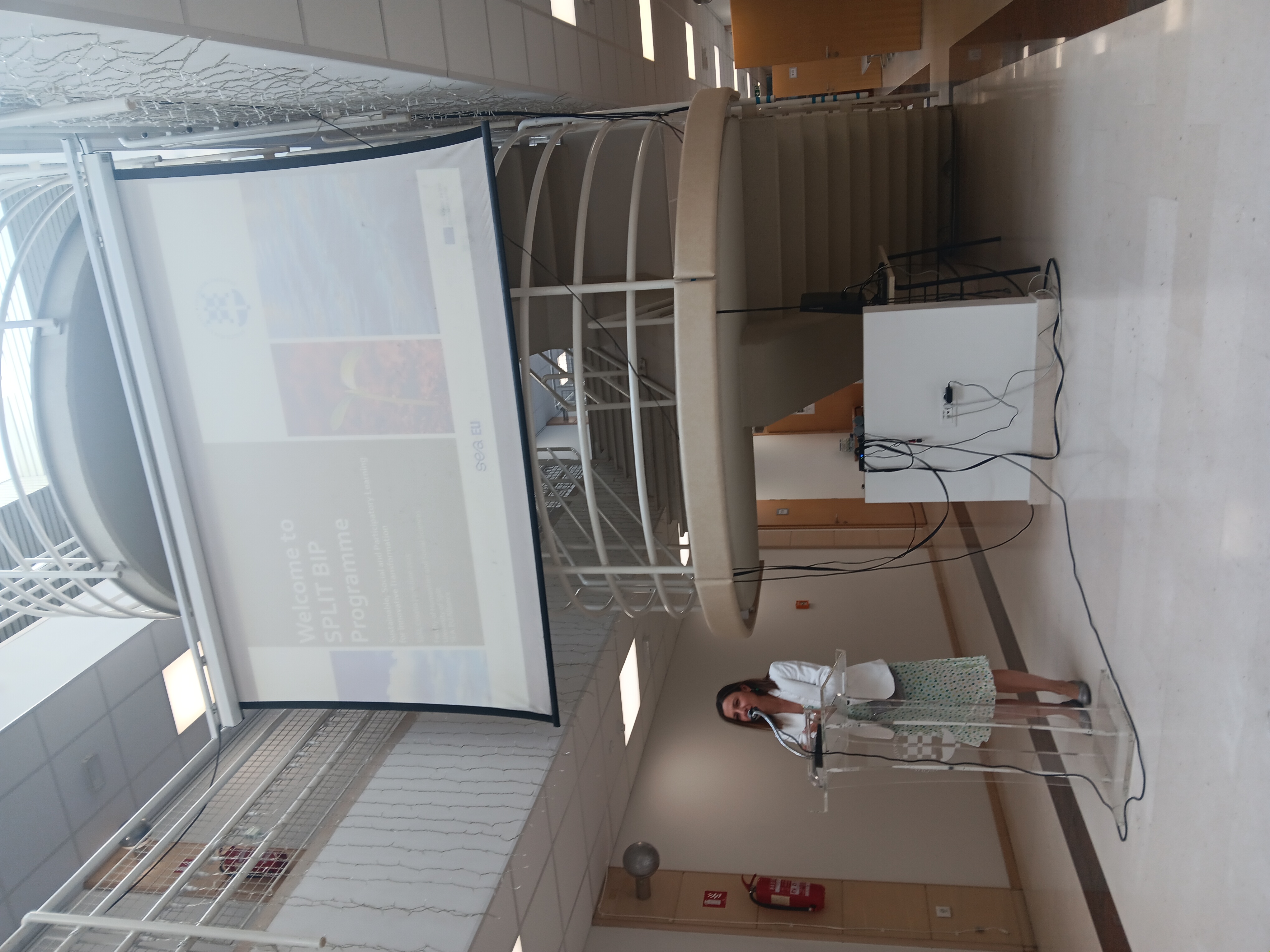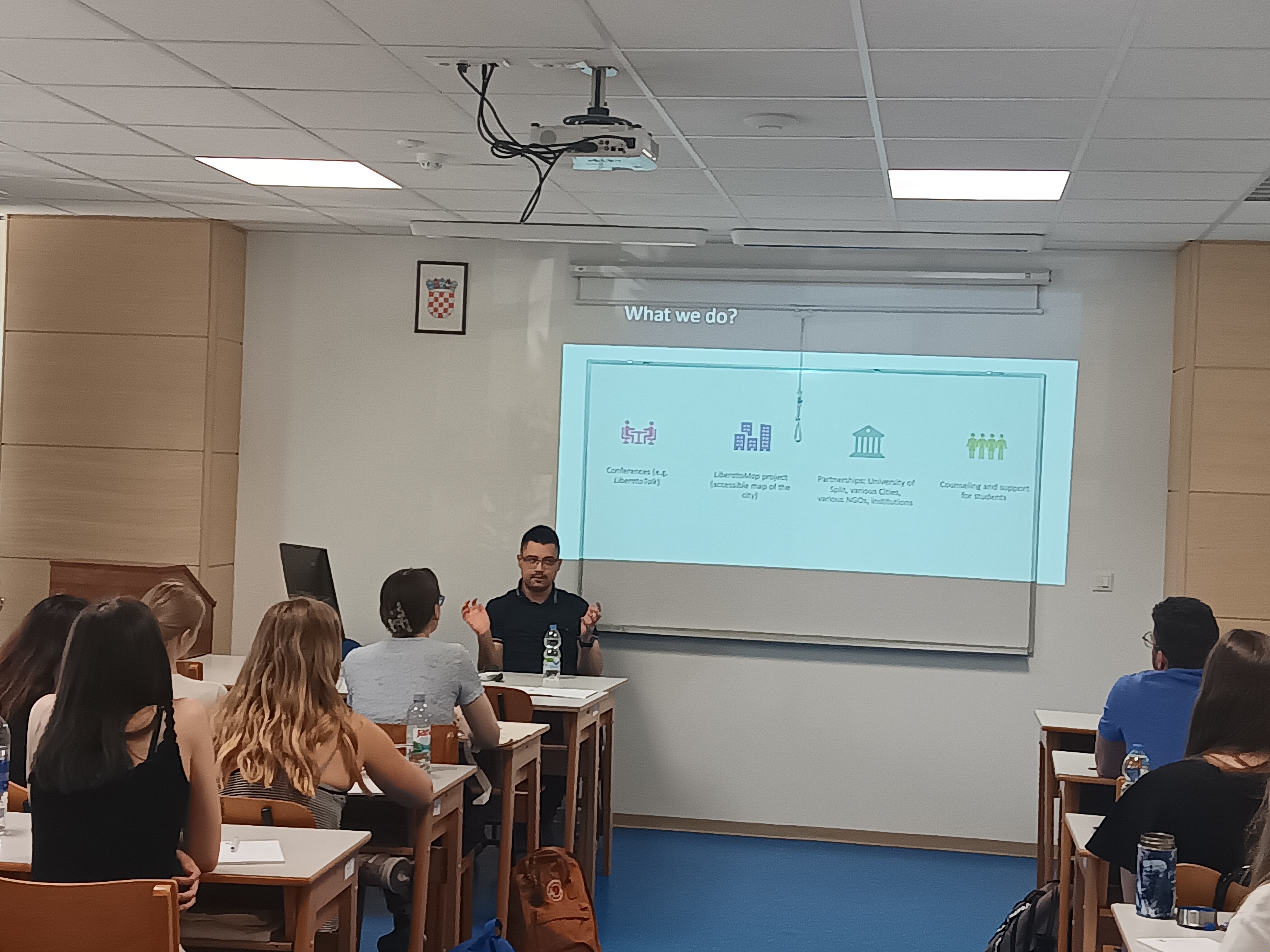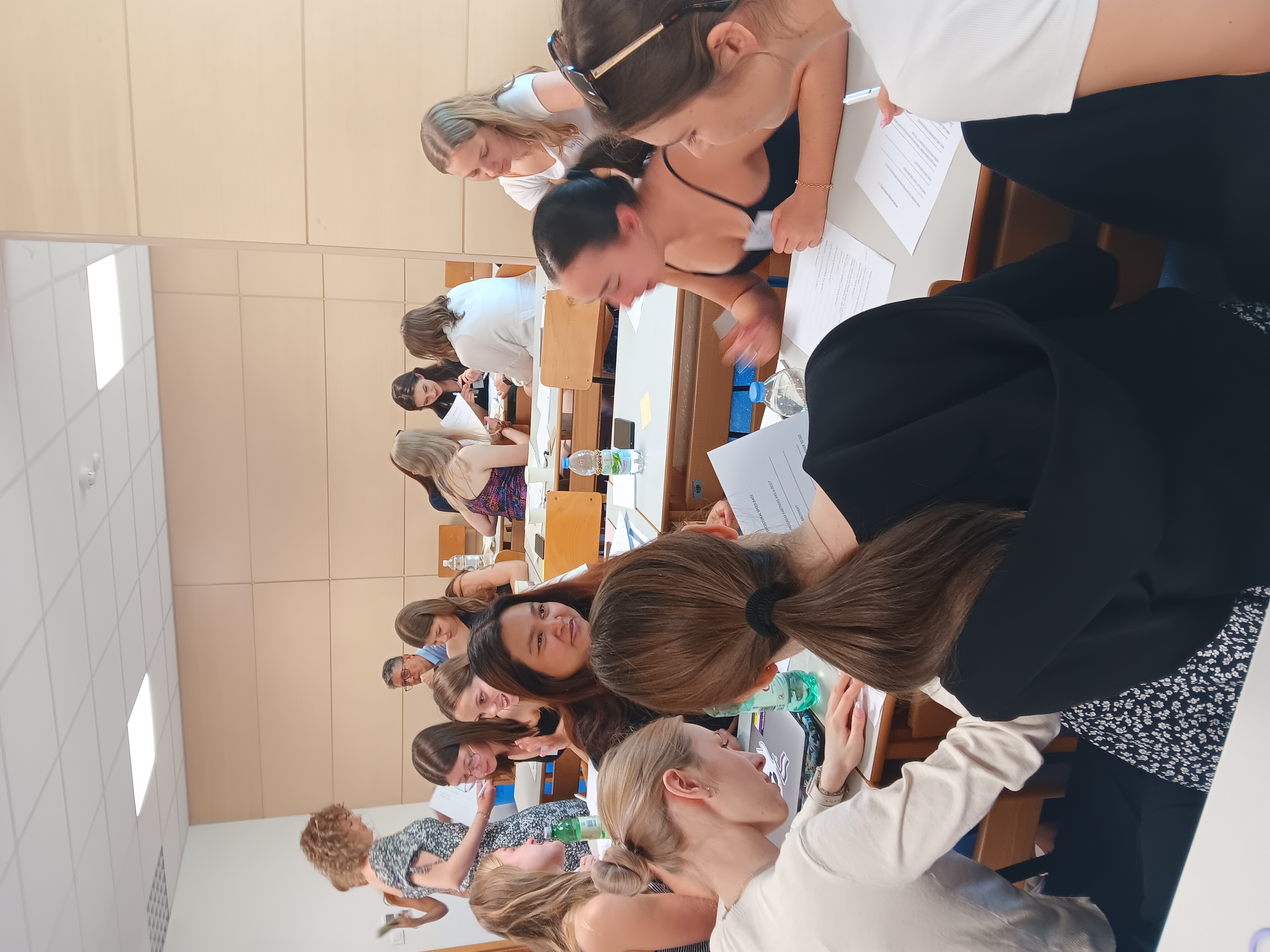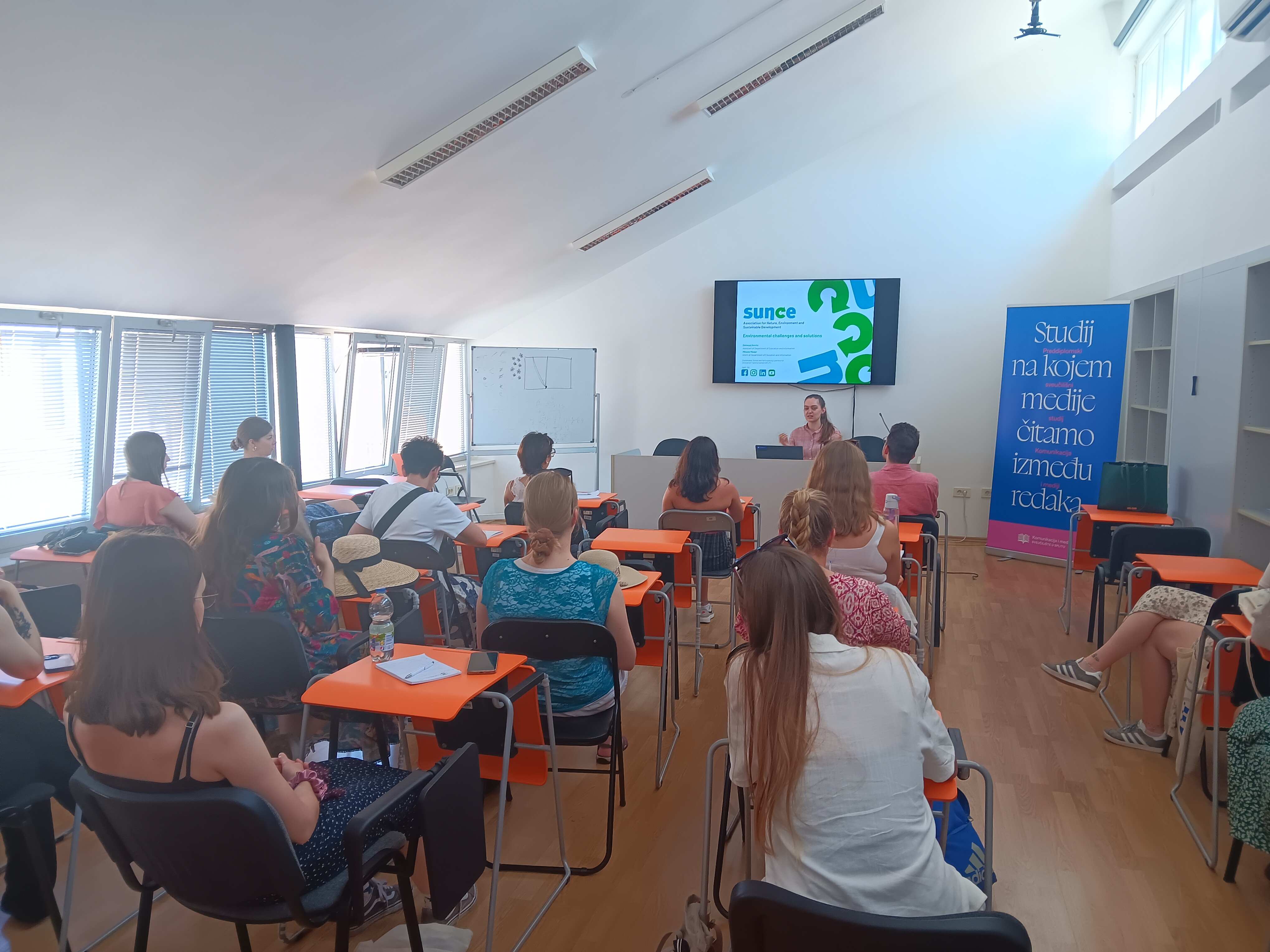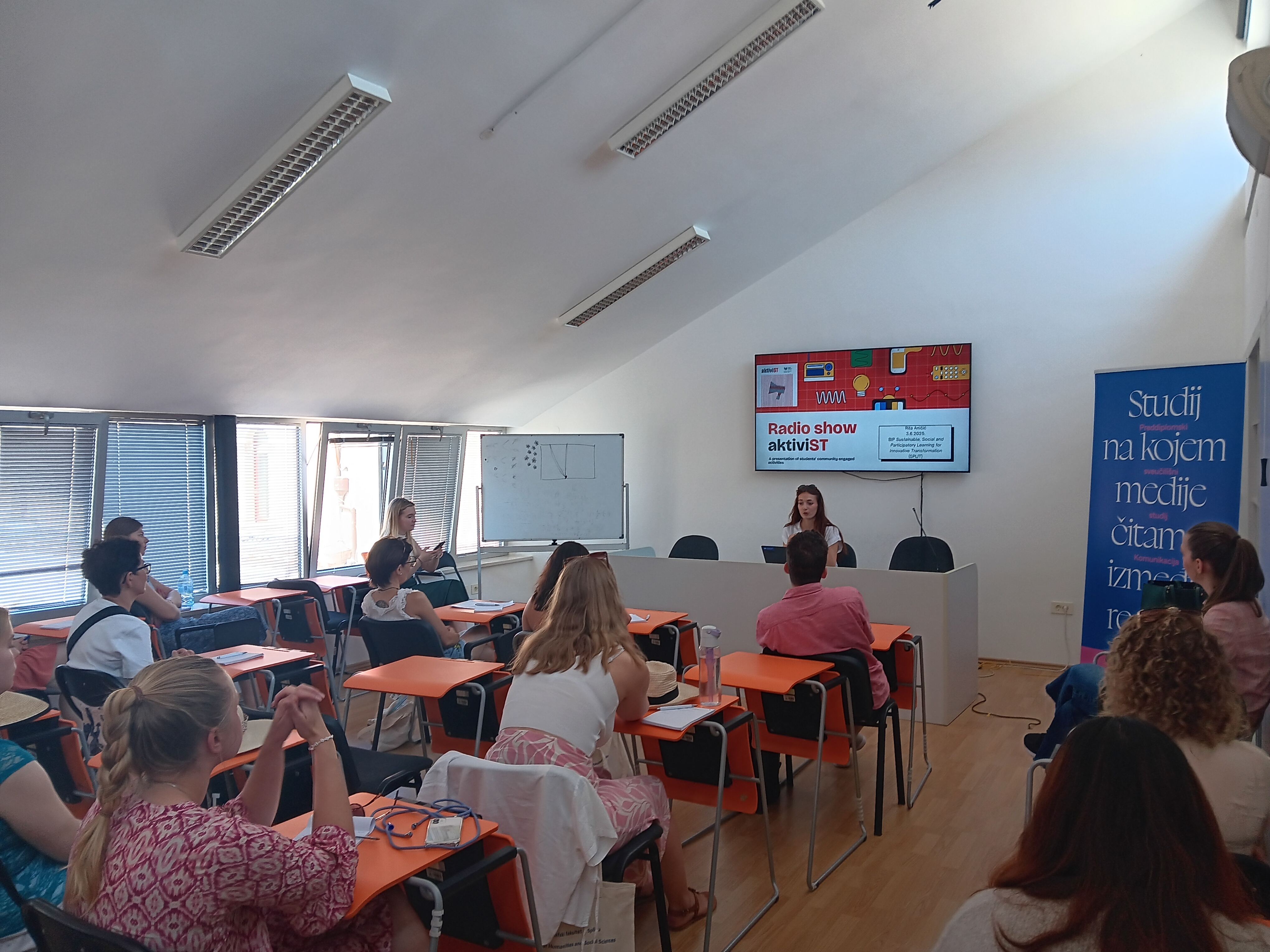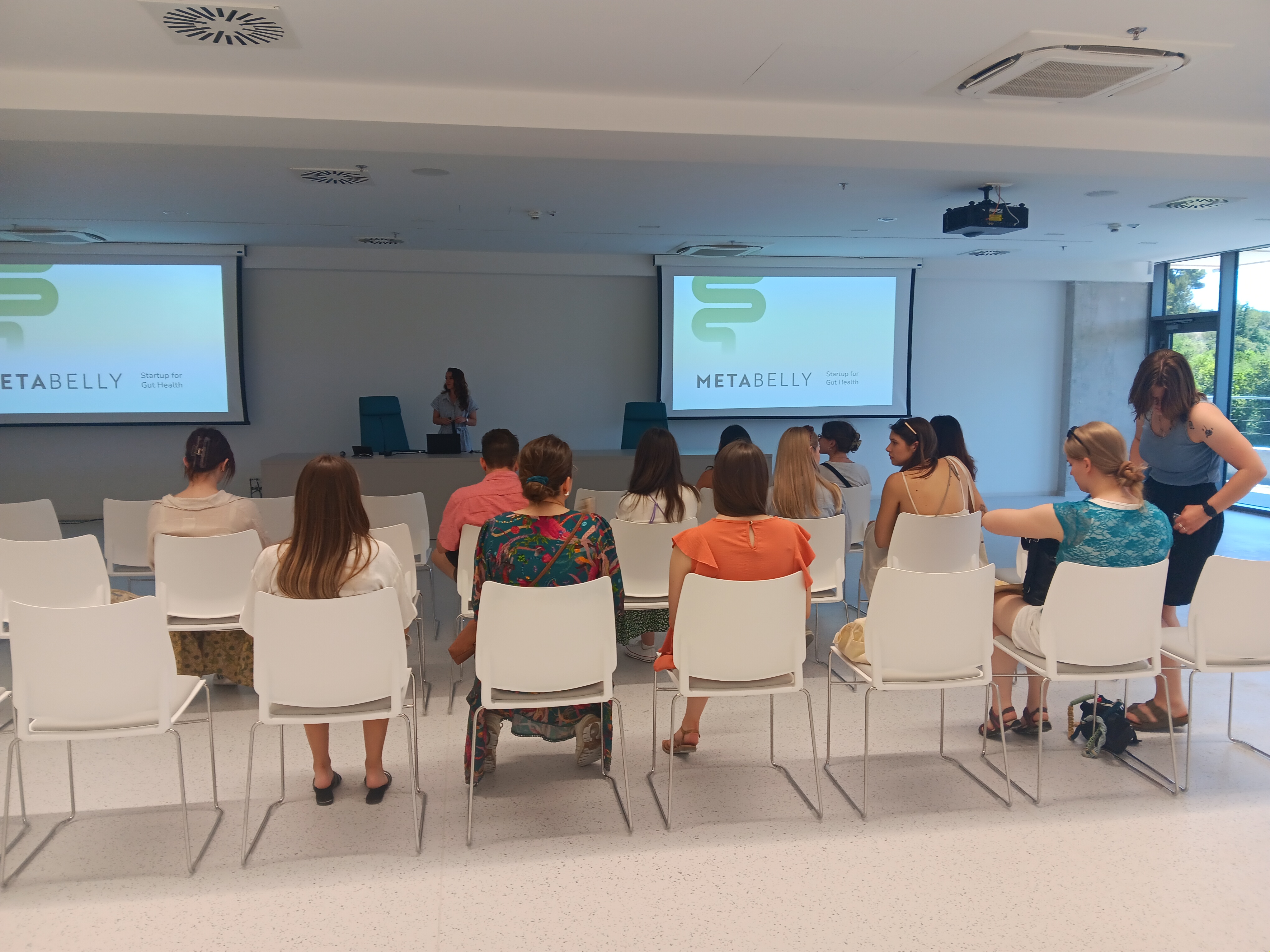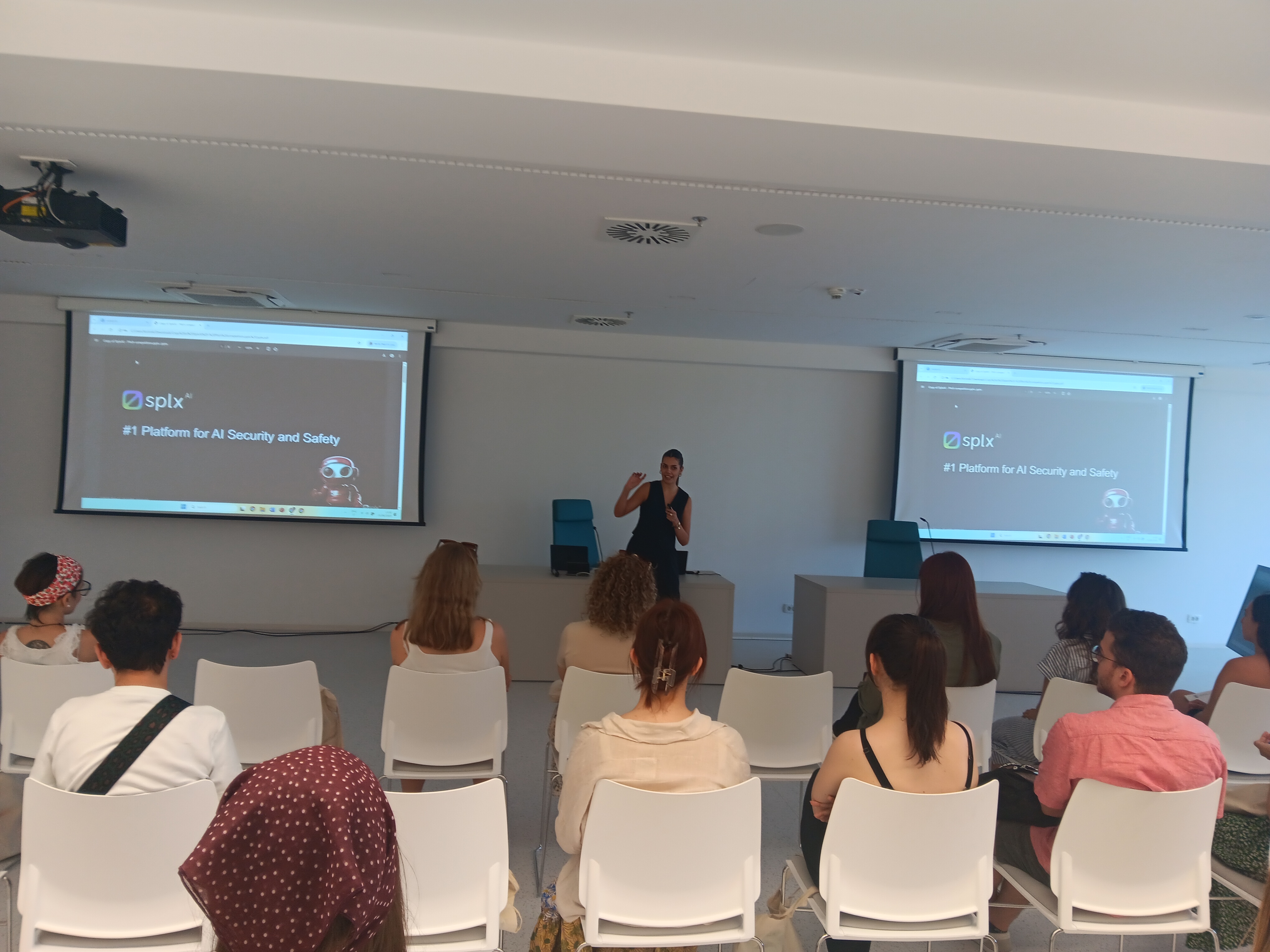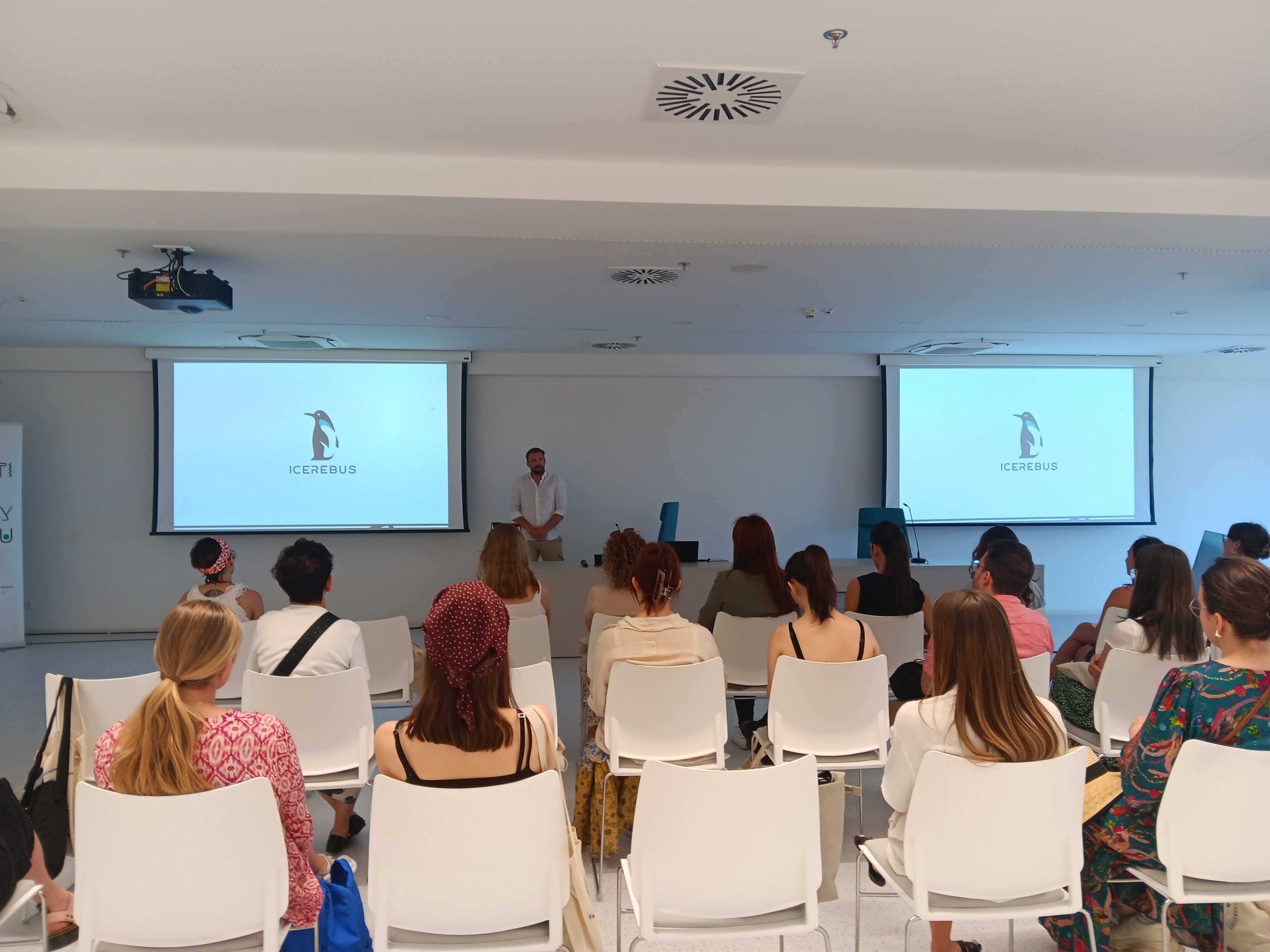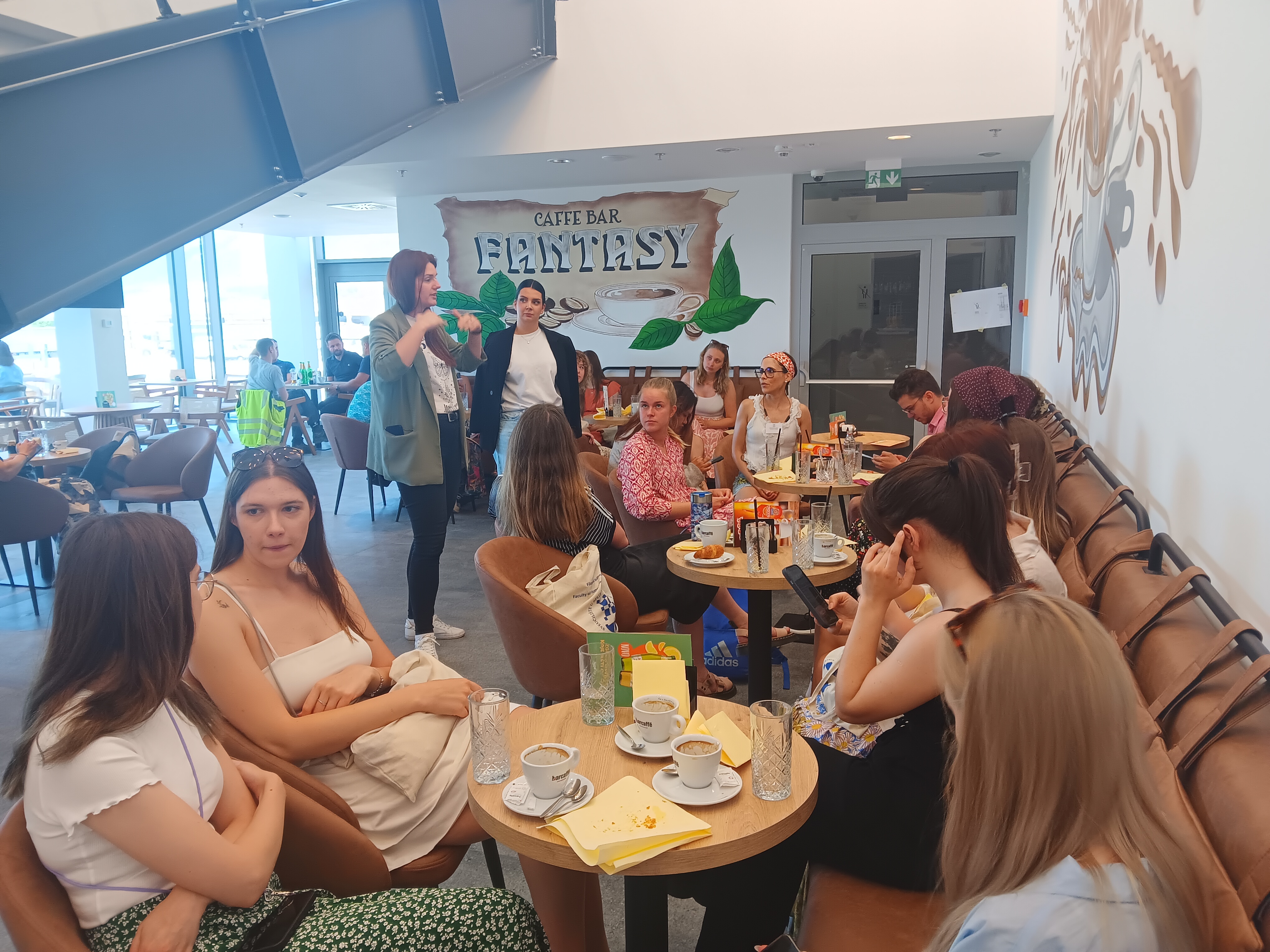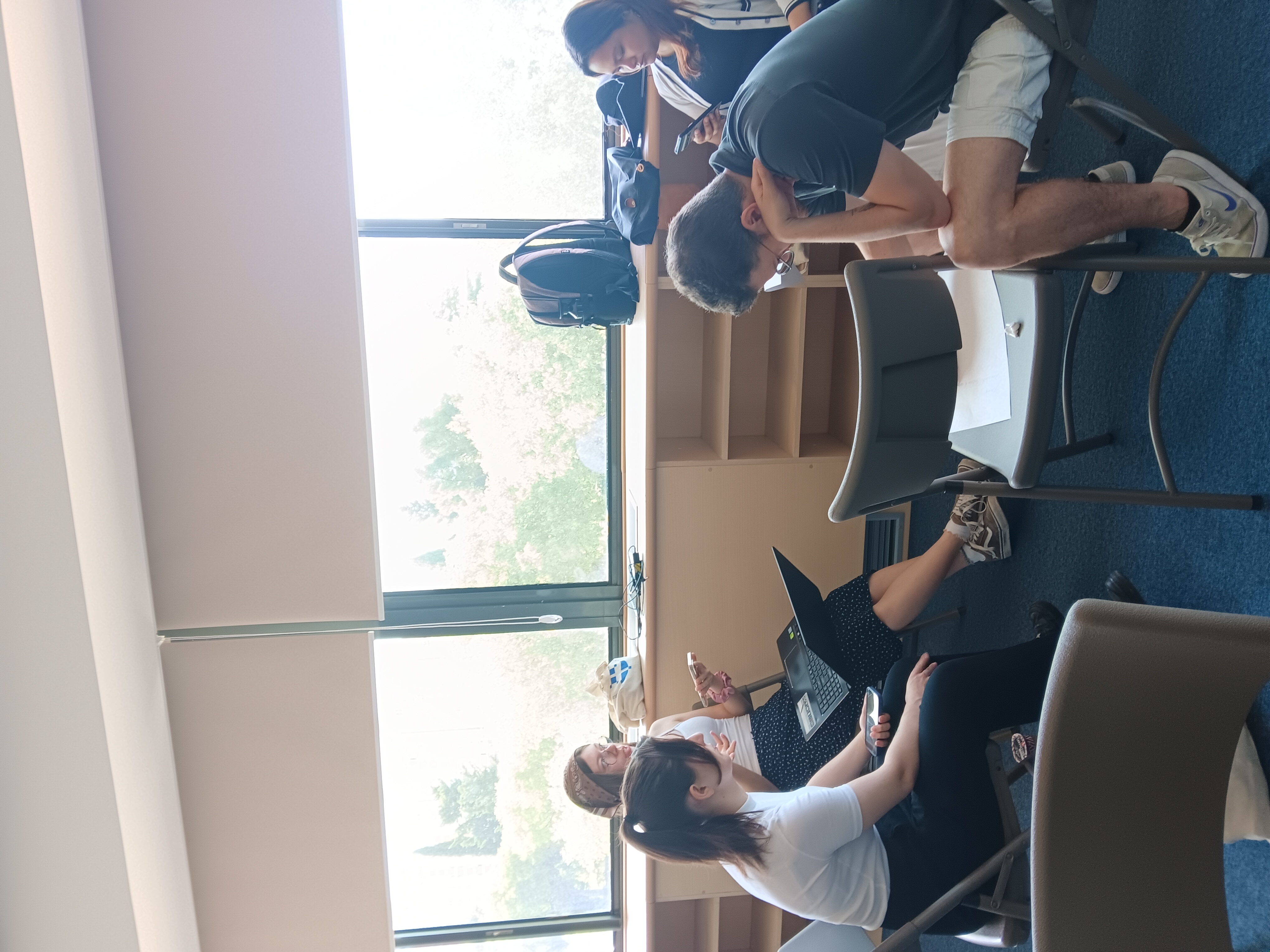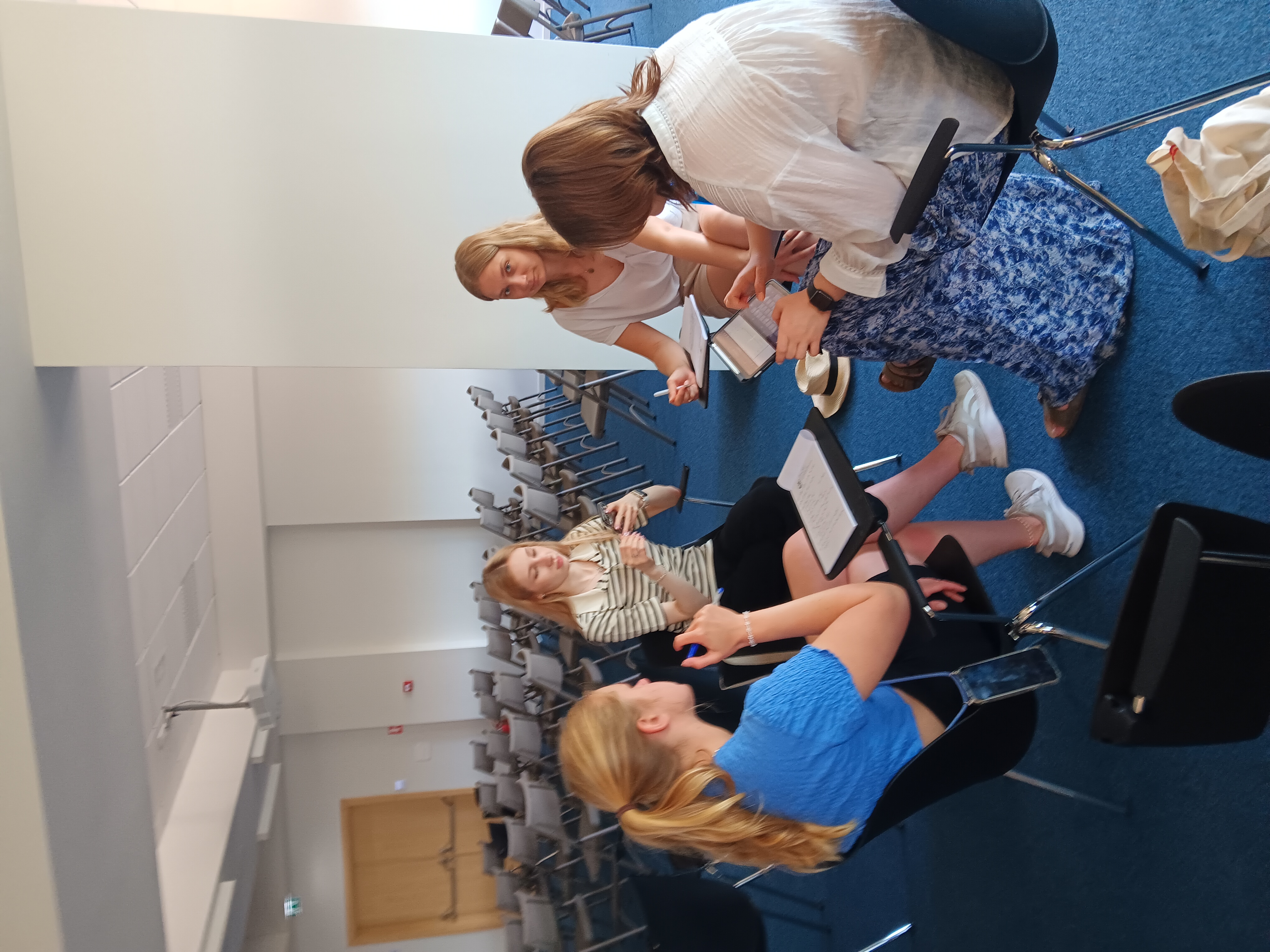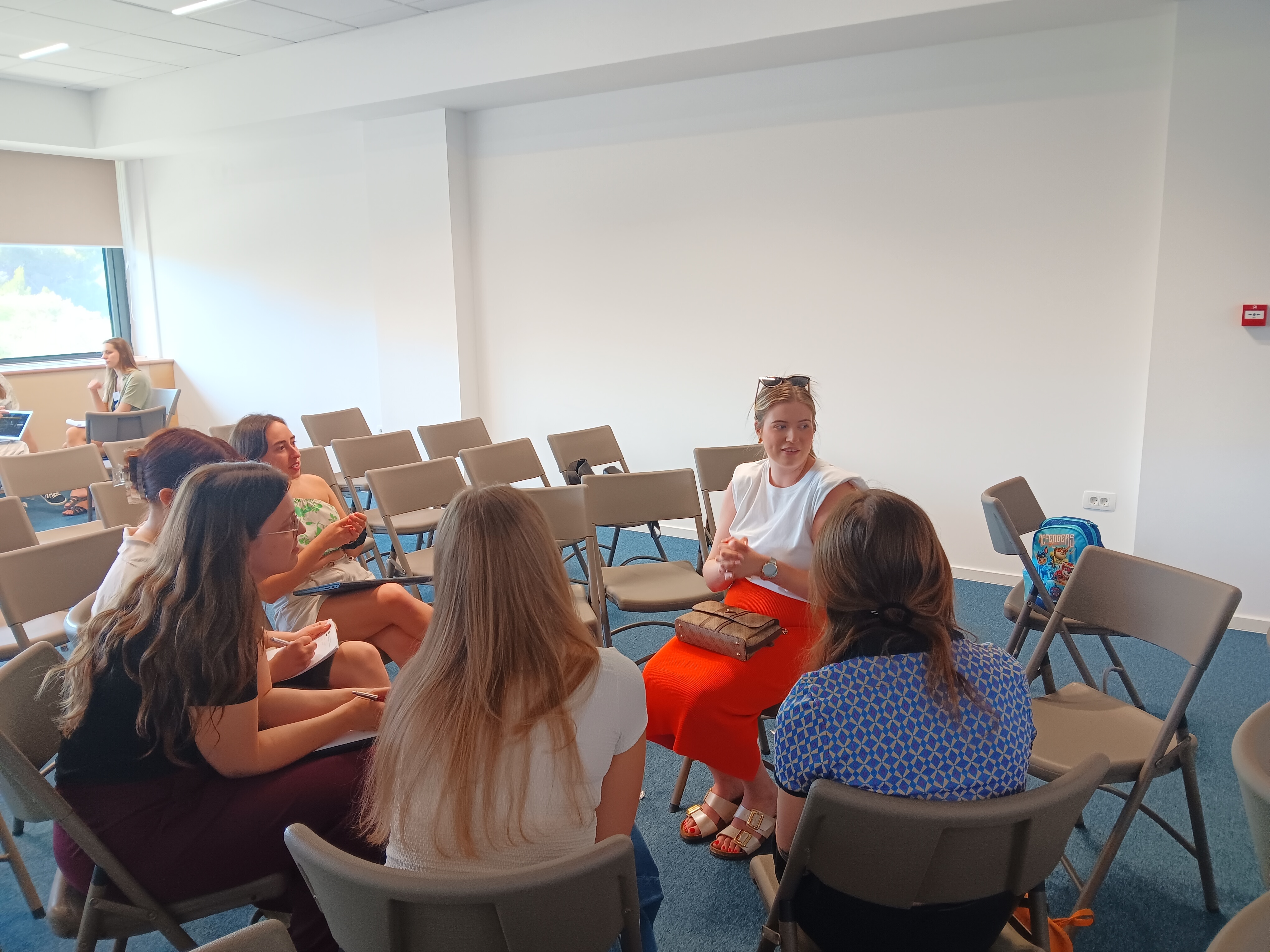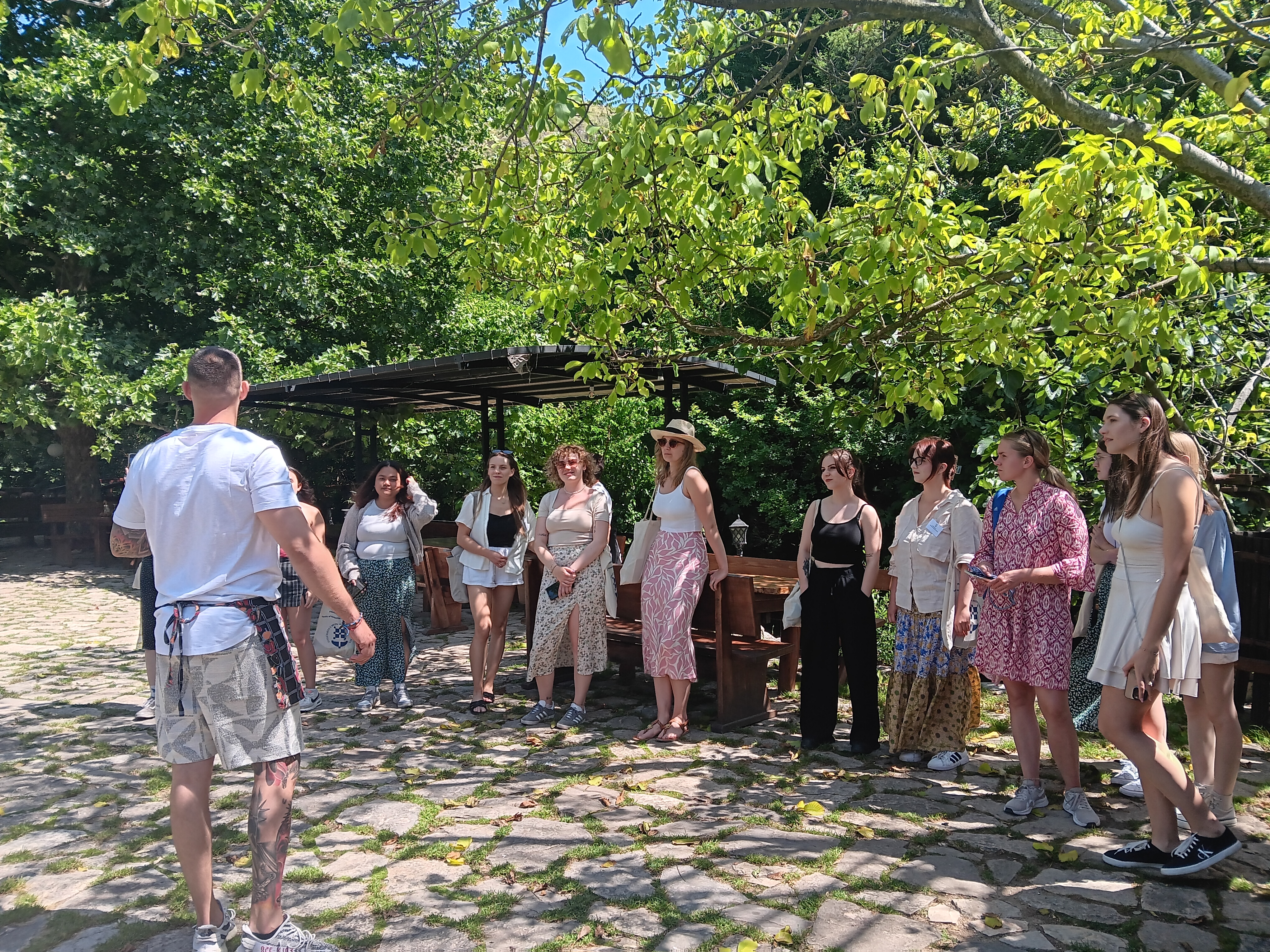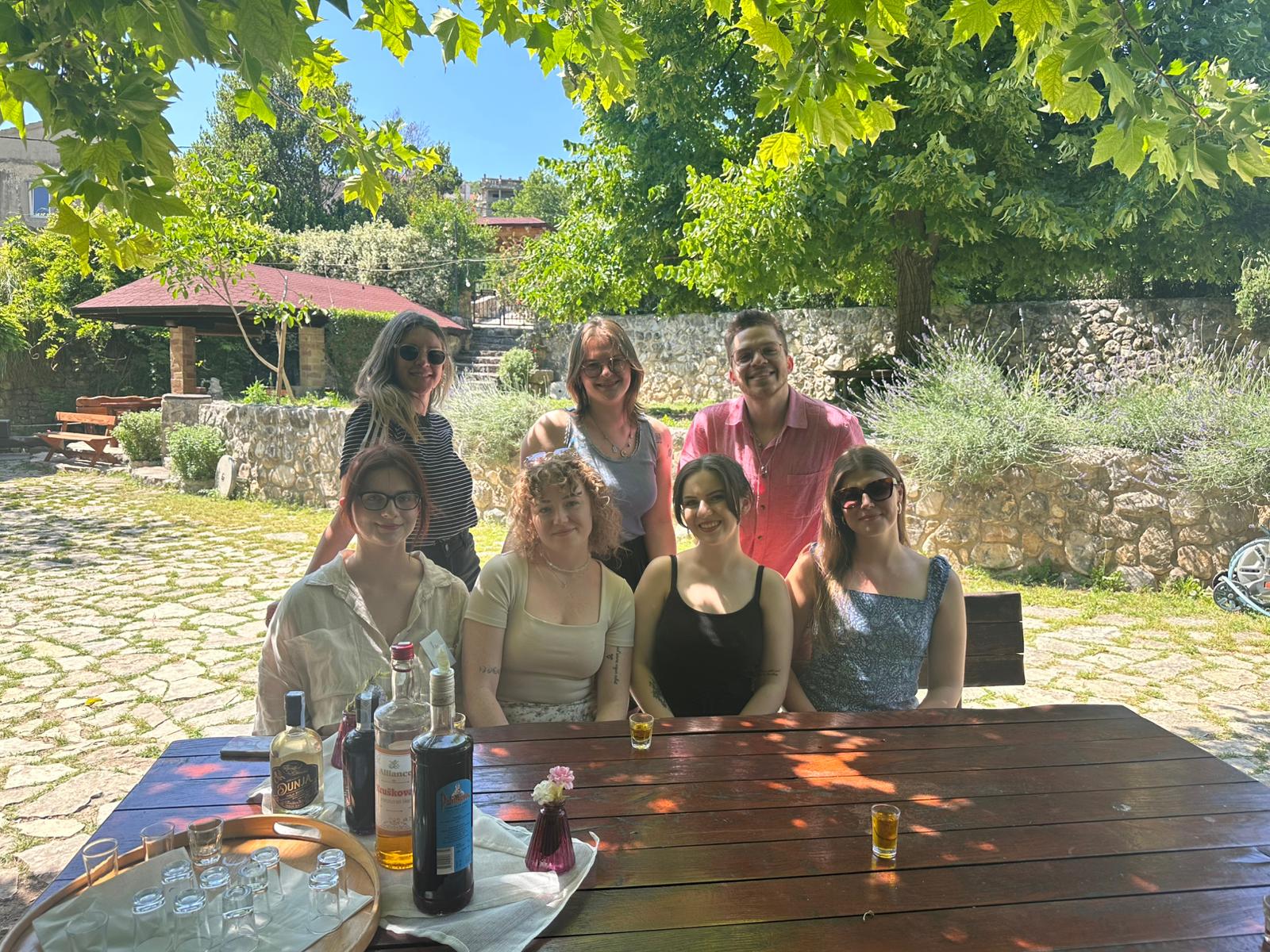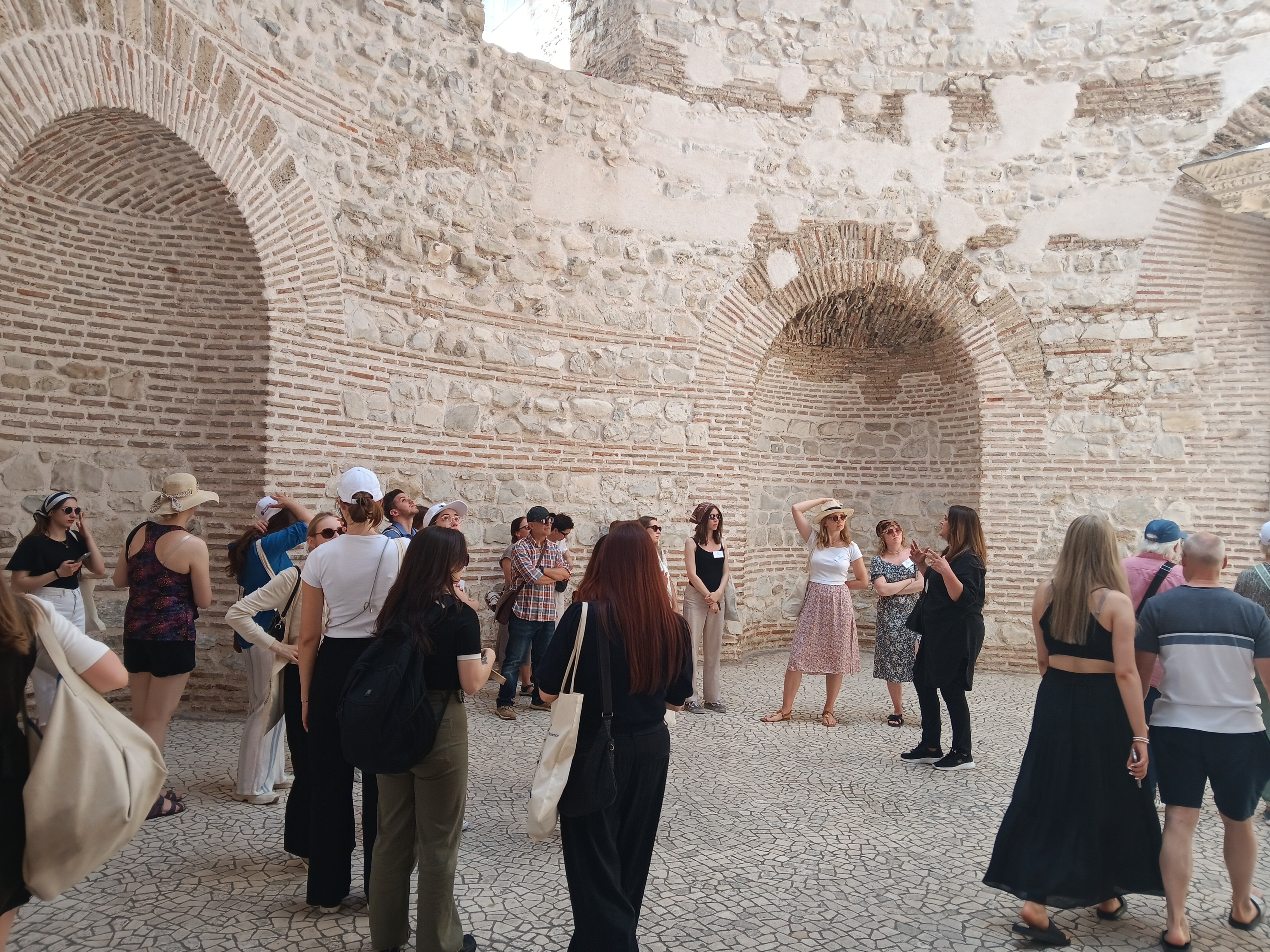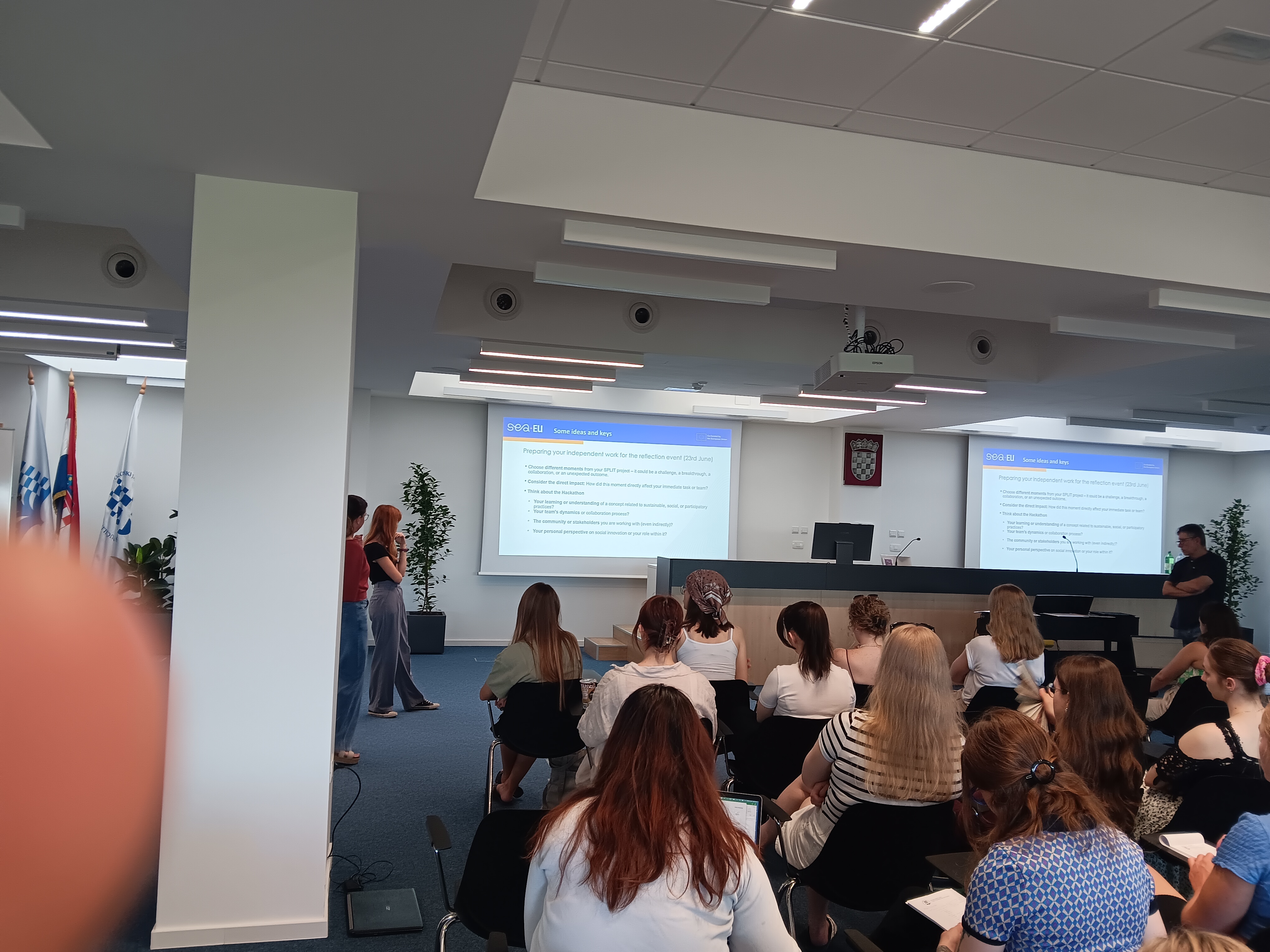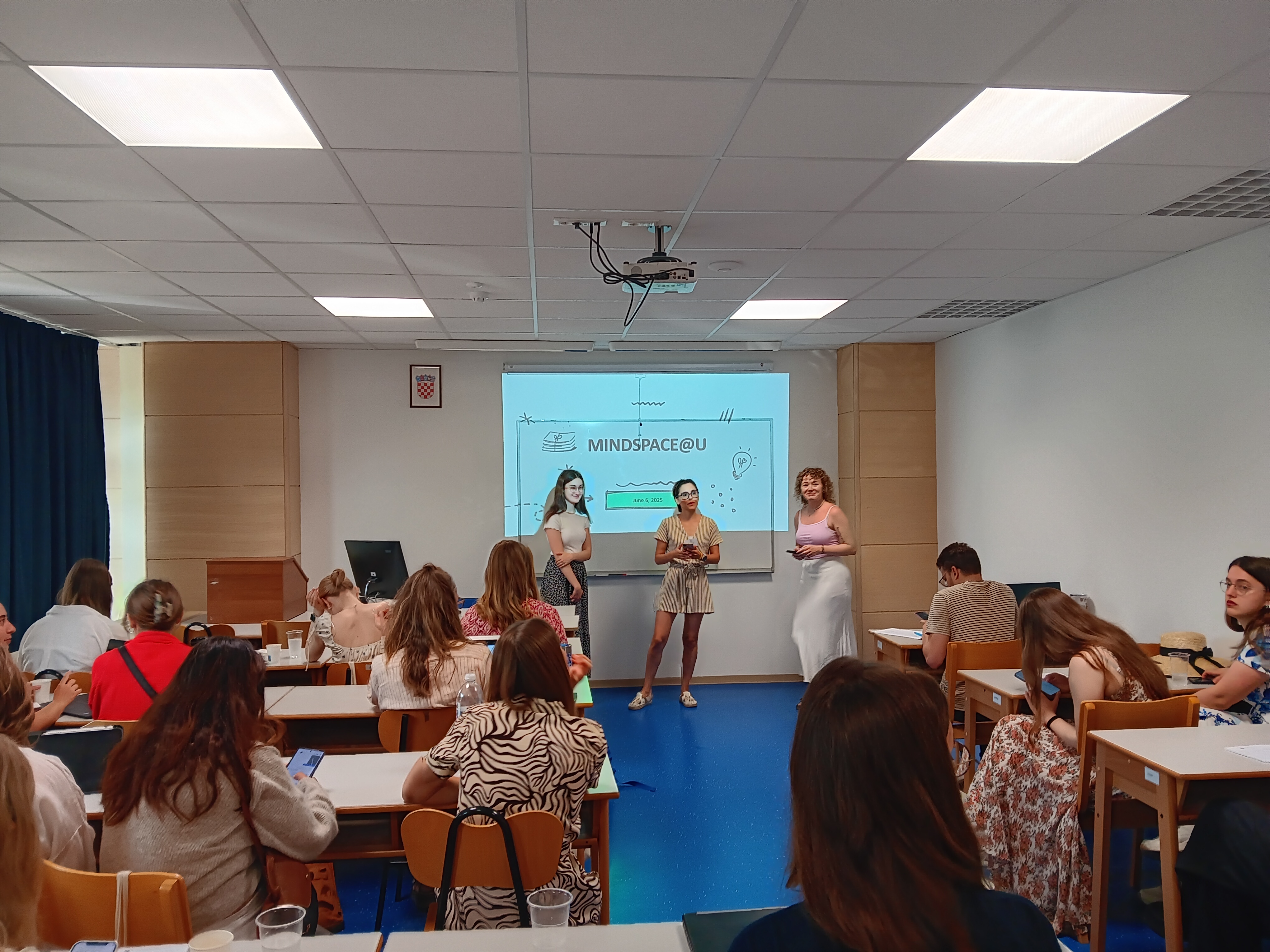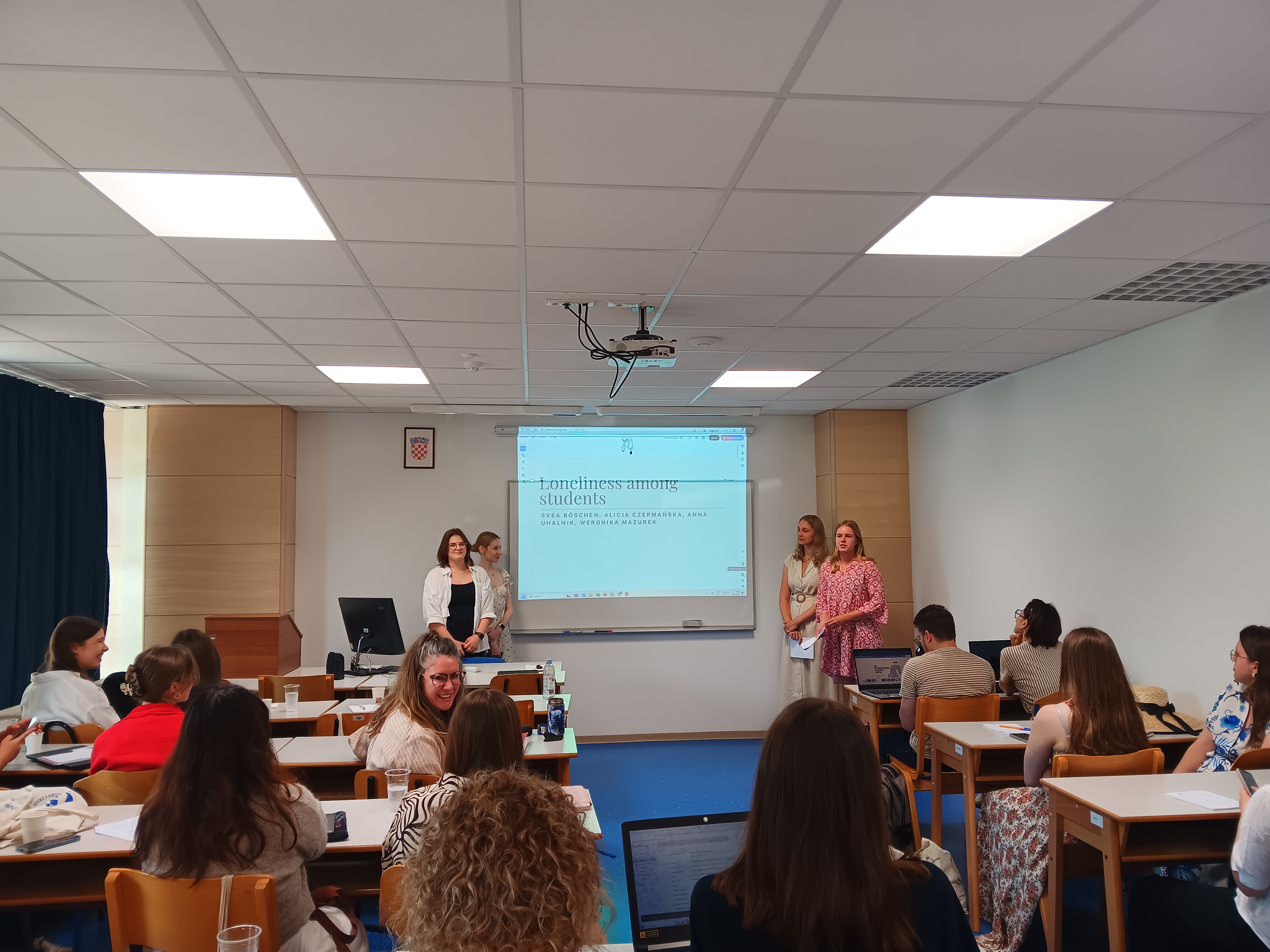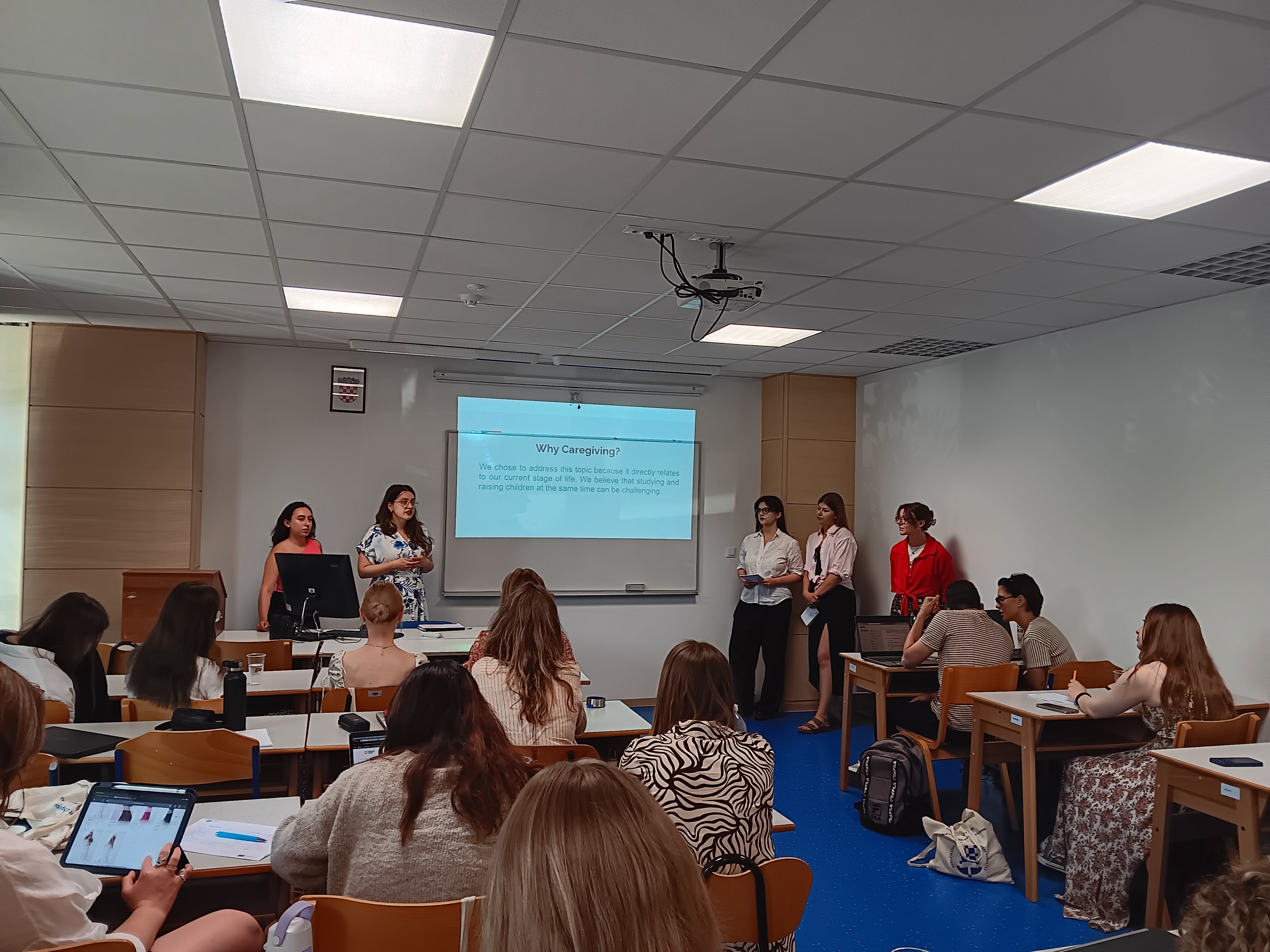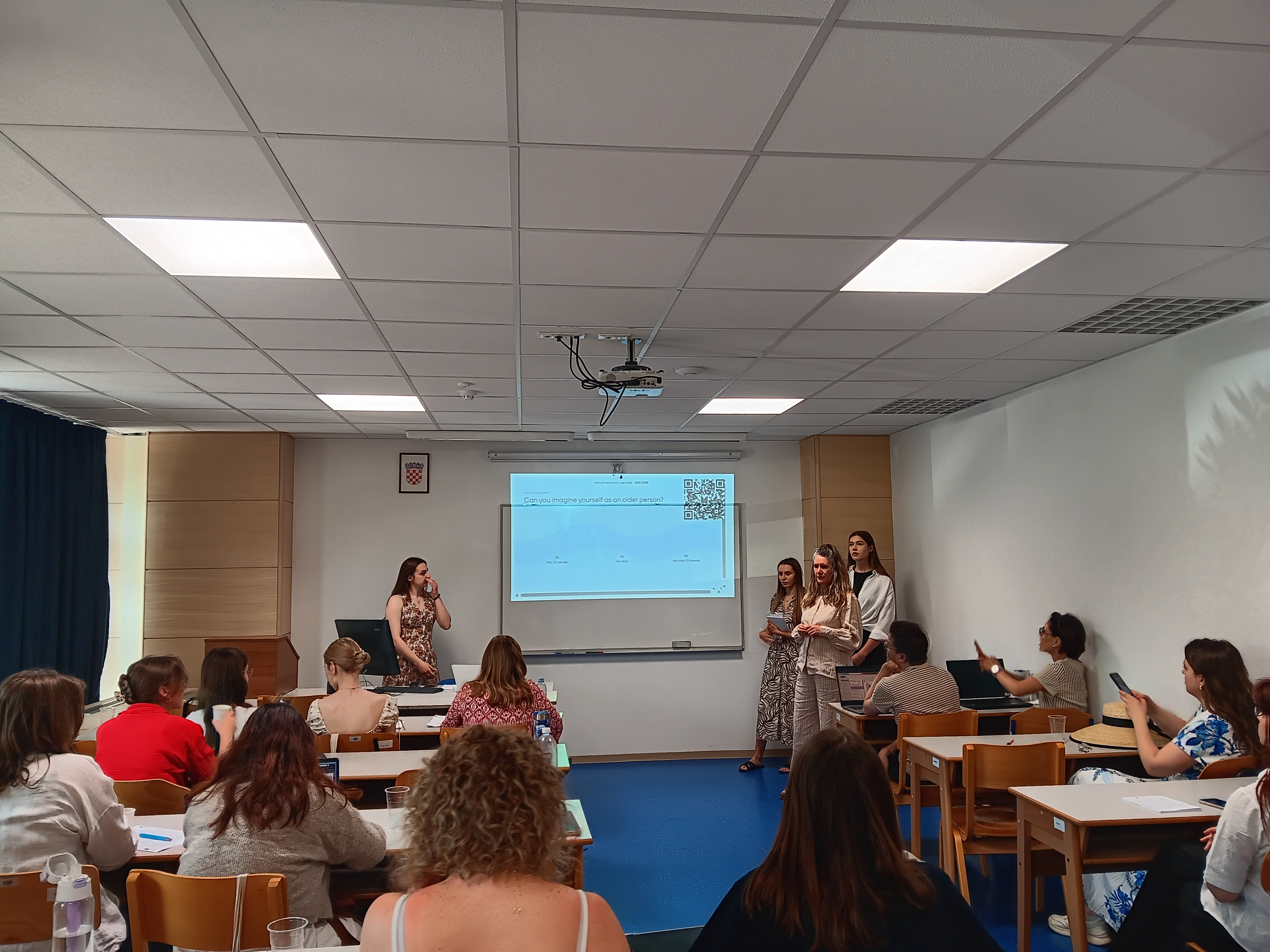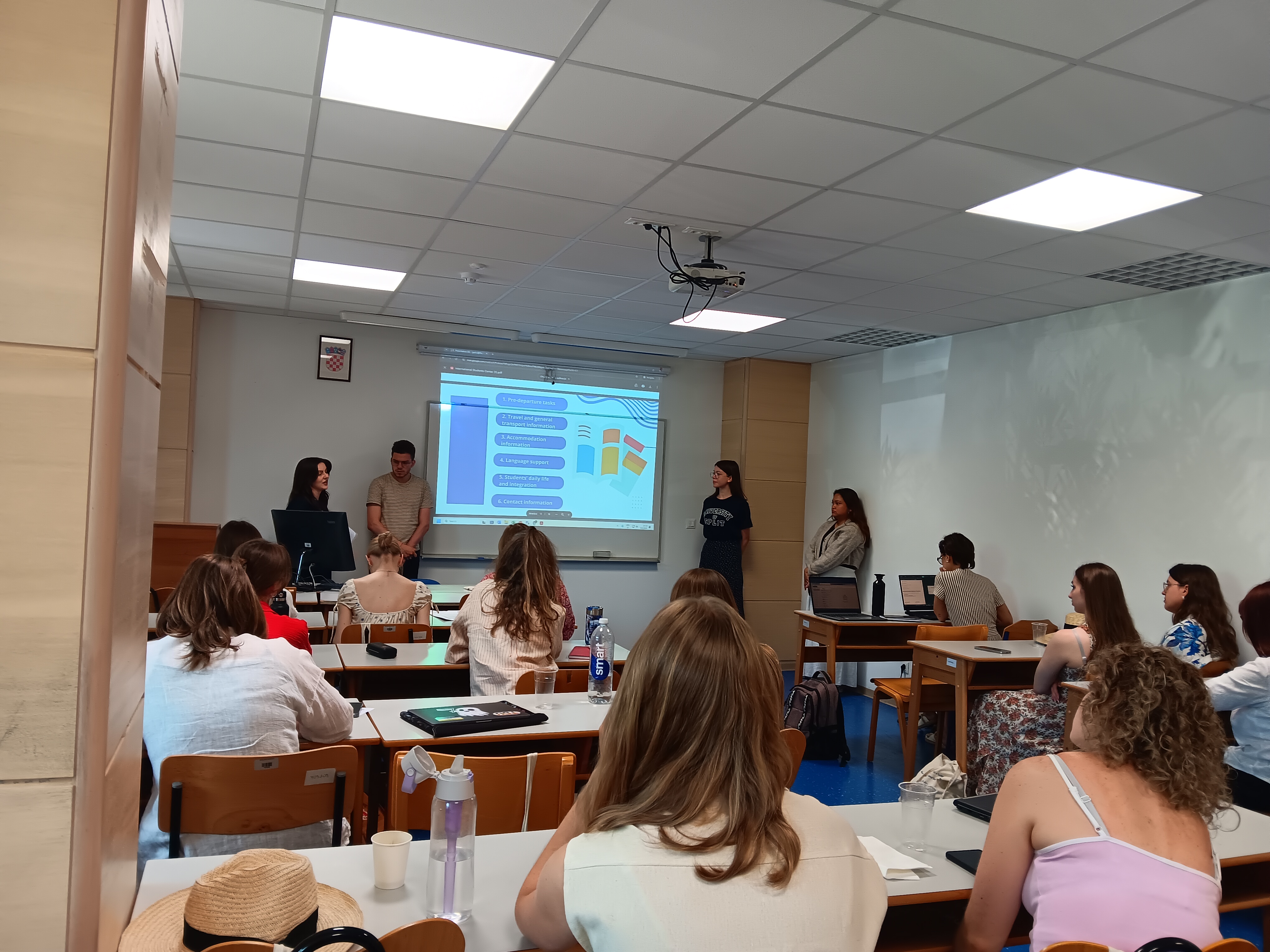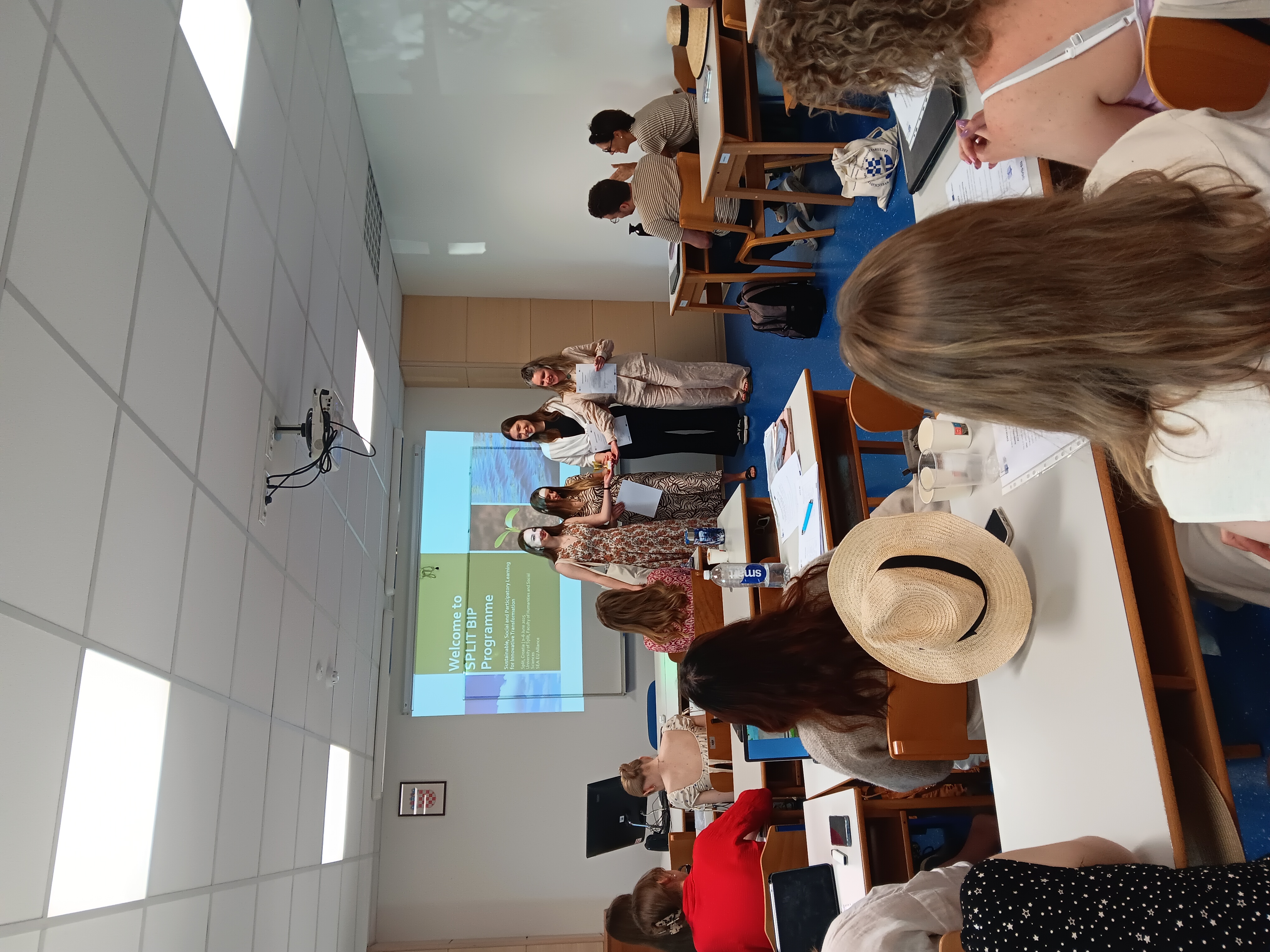Integracija u Europski prostor visokog obrazovanja, internacionalizacija studijskih programa, te povećanje dolazne i odlazne međunarodne mobilnosti studenata i nastavnika zazuzimaju važno mjesto među strateškim ciljevima Sveučilišta u Splitu.
Međunarodna mobilnost studenata i osoblja Filozofskog fakulteta odvija se najvećim dijelom u sklopu programa kao što su: Erasmus+ , CEEPUS, Bilateralni programi, MSCA i drugi.
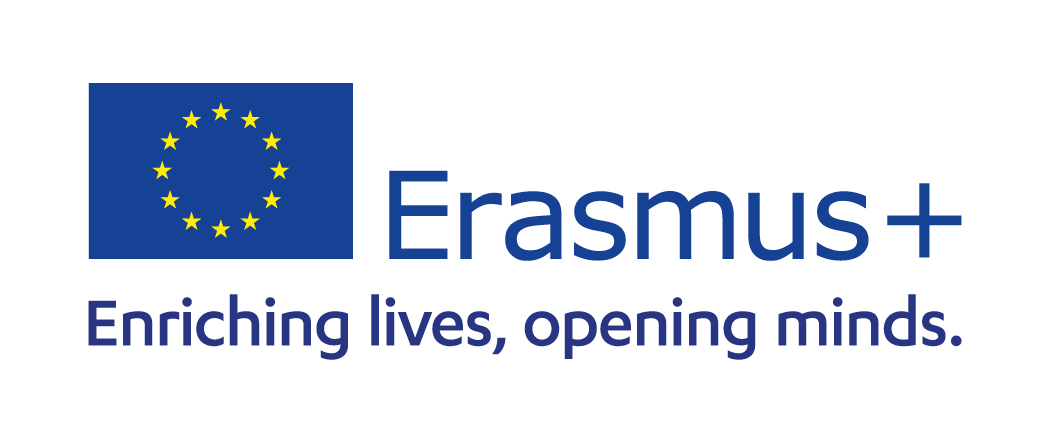
Mobilnost studenata i osoblja u okviru programa Erasmus+ odvija se temeljem interinstitucionalnih sporazuma i natječaja koje raspisuje Sveučilište u Splitu, a koje možete pronaći na sljedećim poveznicama:
Mobilnost u svrhu studija ili u svrhu odžavanja nastave (profesori) moguća je prema bilo kojem od partnerskih sveučilišta unutar godišnjih kvota i područja razmjene kako su definirani ugovorima Sveučilišta u Splitu. Ažurirana lista ugovora objavljuje se u sklopu svakog natječaja.
Vodič programa Erasmus+ 2025
Fakultetska Erasmus koordinatorica :
Tamara Ljubičić, voditeljica Odjeljka za međunarodnu suradnju i odnose s javnošću
PON-PET 08:30 - 11:00 12:30-15:30
e-mail: ljubicic@ffst.hr TEL 021 329 290
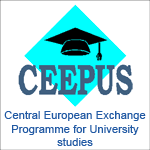
Srednjoeuropski program razmjene za sveučilišne studije (CEEPUS) regionalni je program akademske mobilnosti u kojem sudjeluju: Albanija, Austrija, Bugarska, Bosna i Hercegovina, Crna Gora, Češka, Mađarska, Makedonija, Poljska, Rumunjska, Slovačka, Slovenija i Srbija. U CEEPUS-u se omogućuju tri osnovne vrste mobilnosti. To su:
- mrežna mobilnost koja uključuje mobilnost unutar odobrenih CEEPUS mreža (network mobility) te mobilnost unutar CEEPUS umbrella mreža (mreže koje su zadovoljile kvalitetom, ali nisu među odobenim mrežama za pojedinu akademsku godinu)
- mobilnost izvan CEEPUS mreža, tzv. slobodnjaci (freemoveri)
- kratke grupne mobilnosti.
Nacionalni ured za CEEPUS: Agencija za mobilnost i programe Europske unije; e-mail: ceepus@mobilnost.hr
T: +385 (0)1 500 5635, F: +385 (0) 1 5005 699
MEĐUNARODNI PROJEKTI
Suradnja na međunarodnim projektima od iznimne je važnosti za razvoj znanstvene izvrsnosti i uključenje u Europski istraživački prostor (European Research Area - ERA).
Popis i kratkih opis navažnijih međunarodnih projekata ukojima su sudjelovali naši znanstvenici pogledajte ovdje.
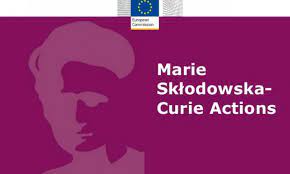
Međunarodna mobilnost znanstvenika financira se između ostalog i kroz program Marie Skłodowska-Curie
i to:
- Innovative Training Networks (ITN)
- Individual fellowships (IF)
- Research and Innovation Staff Exchanges (RISE)
- Co-funding of Regional, National, and International Programmes (COFUND)
Popis otvorenih MSC natječaja pogledajte ovdje.
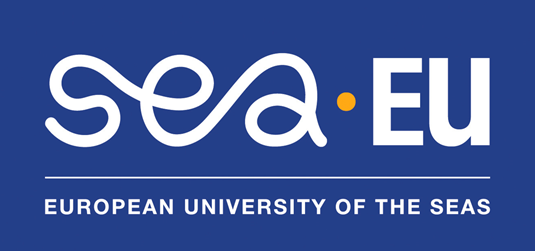
Od 2019. godine, Sveučilište u Splitu član je Europskog sveučilišta mora (SEA-EU), jednog od međunarodnih saveza inicijative Europskih sveučilišta čiji je cilj transformacija europskog visokoobrazovnog prostora.
Više o mogućnostima za učenje, praksu, usavršavanje, mobilnost, istraživačku suradnju i sudjelovanje koje nudi alijansa SEA-EU saznajte na poveznici.
 Pristupačnost
Pristupačnost
